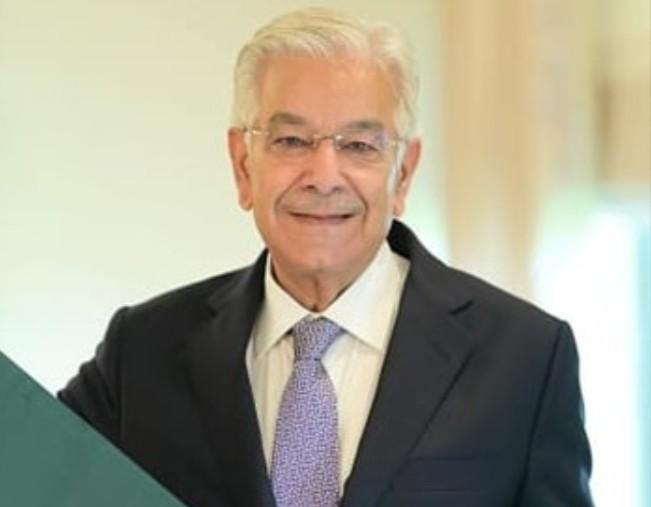
Pakistan Defence Minister Khawaja Asif says Military Action by India ‘Imminent’
In a recent statement, Pakistan Defence Minister Khawaja Muhammad Asif has sparked concerns about the escalating tensions between India and Pakistan, stating that military action by India is “imminent” following the recent terrorist attack in Pahalgam, which claimed the lives of 26 tourists.
Asif’s statement comes as a response to the brutal attack carried out by terrorists from Pakistan-based LeT’s offshoot TRF, which has left the world in shock. The Defence Minister’s comments have sent shockwaves across the region, with many interpreting his words as a warning of potential military retaliation from India.
“So in that situation, some strategic decisions have to be taken…those decisions have been taken,” Asif said, indicating that Pakistan’s military has been briefed on the possibility of Indian retaliation. His statement has raised concerns about the potential for military action, which could have far-reaching consequences for the region.
The attack in Pahalgam, which is a popular tourist destination in Jammu and Kashmir, has been widely condemned by governments and organizations around the world. The victims were mostly foreign tourists, including nationals from Bangladesh, Nepal, and Ukraine. The attack was carried out by a group of heavily armed terrorists who opened fire on the tourists, causing widespread panic and chaos.
Pakistan-based LeT’s offshoot TRF has claimed responsibility for the attack, which has been seen as a major escalation in the ongoing tensions between India and Pakistan. The attack has raised questions about Pakistan’s ability to control terrorist groups operating within its borders, and has led to widespread outrage and condemnation across the region.
Asif’s statement has been seen as a warning to India, which has been increasingly vocal about the need for Pakistan to take action against terrorist groups operating within its borders. India has long accused Pakistan of supporting terrorist groups, including LeT, which has been responsible for numerous attacks in India and elsewhere.
Pakistan, on the other hand, has denied any involvement in the recent attack, and has instead accused India of trying to destabilize the region. The country has a history of denying involvement in attacks carried out by terrorist groups, and has often blamed India for perpetuating the cycle of violence.
The tensions between India and Pakistan have been escalating in recent months, with both sides trading accusations and engaging in a war of words. The situation has been further complicated by the recent change in government in India, which has led to a hardening of India’s stance on Pakistan.
India has been pushing for Pakistan to take action against terrorist groups operating within its borders, and has threatened to take military action if Pakistan fails to comply. Pakistan, on the other hand, has accused India of trying to impose its will on the region, and has vowed to defend itself against any military aggression.
The situation is fast becoming increasingly precarious, with both sides dug in and refusing to back down. The possibility of military action is a real one, and could have far-reaching consequences for the region.
Asif’s statement has been seen as a warning of the potential for military action, and has raised concerns about the potential for conflict. The situation is a complex one, with multiple players and interests at stake. However, one thing is clear: the stakes are high, and the consequences of failure could be catastrophic.
In conclusion, Khawaja Asif’s statement has sent shockwaves across the region, and has raised concerns about the potential for military action between India and Pakistan. The situation is complex and precarious, with multiple players and interests at stake. The world is watching with bated breath, hoping that a peaceful resolution can be found.



